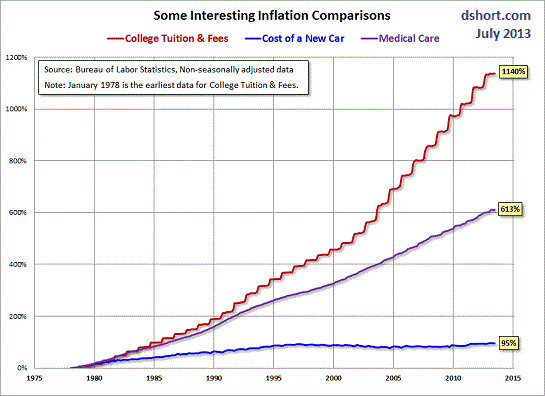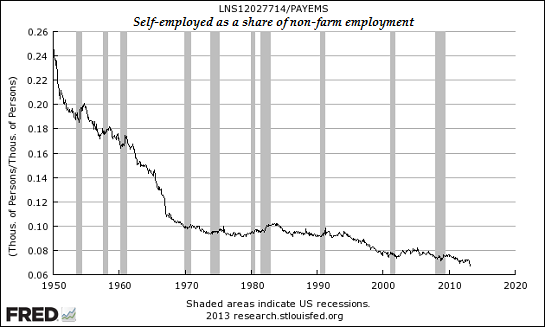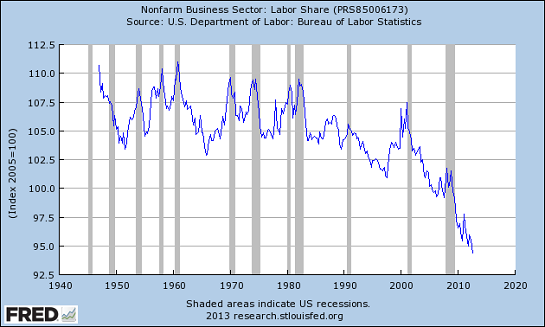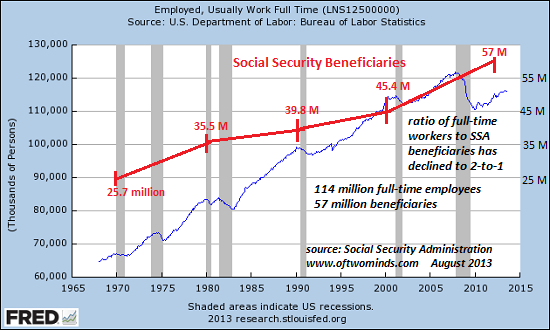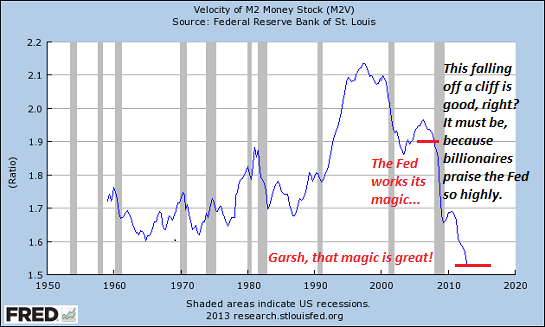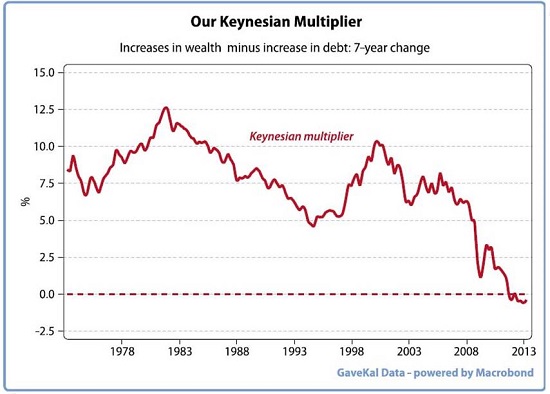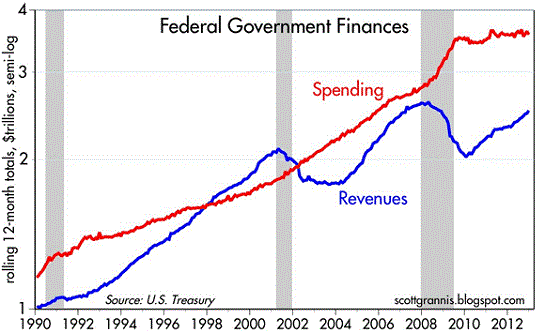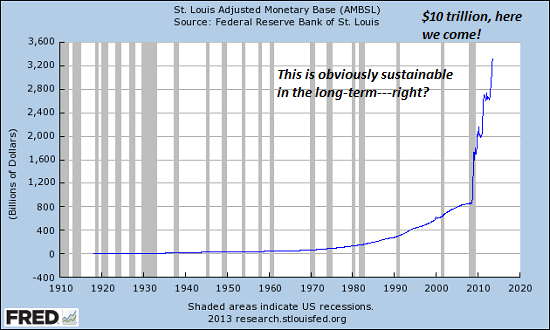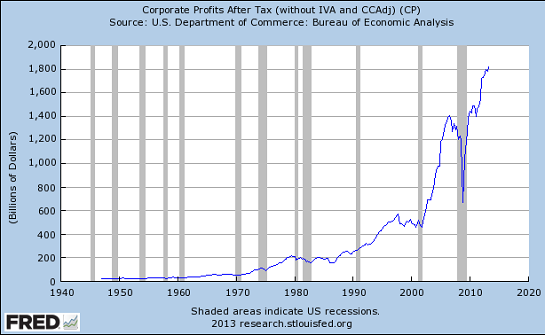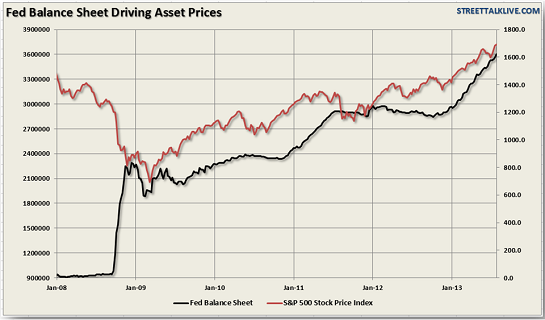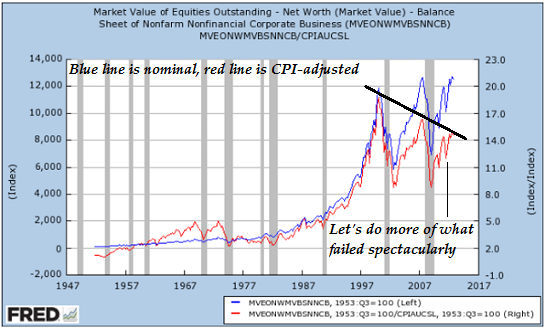Submitted by Tomas Salamanca via the Ludwig von Mises Institute of Canada,
Until recently, Alan Greenspan’s main argument to exonerate himself of responsibility for the 2007-2009 financial crisis has consisted in the claim that strong Asian demand for US treasury bonds kept interest rates on mortgages unusually low. Though he has not given up on this defense, he is now emphasizing a different tack, as manifest in an article published in the current issue of Foreign Affairs. The article captures key themes elaborated in his latest book on the problem of forecasting, The Map and the Territory. His new tack is no better than the old tack.
Reprising what has lately become a very common refrain in financial commentary, Greenspan points the finger at the emotional side of human nature. This is the side where behavioral economics has recently made a name for itself in formulating its accounts of investor behaviour. Actually, this approach has a much older provenance, most famously conveyed in Keynes’ invocation of “animal spirits” in the General Theory of Employment, Interest, and Money. On the Keynesian view that behavioral economics adopts, investors do not buy and sell securities by rationally processing all available information and calculating expected returns. Rather, their decision making is distorted by cognitive biases and swayed by the oscillating passions of fear and hope.
In Greenspan’s rendering of the “animal spirits”, investors swing between phases of risk loving and aversion. Greenspan also maintains that “animal spirits” show themselves in herd behaviour. Inasmuch as investors take their cues from others, they tend to be either risk loving, or risk averse, all at the same time. You know where all this is going with respect to the financial crisis. According to Greenspan, the herd on Wall Street bought up mortgage backed securities while underestimating their risks, and then as soon as those risks became all too clear, everyone headed to the exits simultaneously.
No doubt, an understanding of human psychology is helpful in making sense of economic phenomena. But we have to be precise in distinguishing the role of psychology in economics. As Mises argued, economics is a deductive science. All its conclusions ultimately proceed from the axiom that human beings act by choosing between alternative means to realize their subjective ends. All the psychology that economics needs is the rather obvious proposition that an overriding goal of human beings is the quest to attain a more favorable state of affairs in their lives. Only when the attempt is made to illustrate the operation of economic principles in the real world, as happens when one is engaged in the writing of economic history, does psychology become illuminating. A psychological analysis might, for example, tell us what goals a particular individual or group are pursuing as well as the degree to which they prioritize considerations of the present over those of the future. Psychology can help economists tell richer stories; it cannot help them derive better economic theories.
Still, this is not the most significant of Greenspan’s errors. Yes, very few people are truly independent thinkers. Not being confident in any opinion unless it is socially confirmed somehow, people are inclined to think as others around them do. And so, yes, this means human beings are subject to herding behaviour. Yet in order for a herd to develop in favor of some opinion, such as that sub-prime mortgage securities are a great investment, that opinion must initially gain traction. This is what Greenspan’s account is missing. He seems to think that investor herds come out of nowhere, mysteriously emerging more often than would be expected from a bell curve distribution of asset price changes. How, in other words, did sub-prime mortgage trend higher in the first place so as to generate all the enthusiasm it subsequently attracted?
The answer, of course, involves the loose monetary policy that Greenspan himself ran in the 2000′s as chairman of the Federal Reserve. By injecting so much money into the financial system, he supplied market participants with the means of raising the demand for financial assets. By greatly reducing the yields on low risk government bonds, Greenspan shifted that demand towards higher risk mortgage securities offering more appealing rates of return. Yield spreads narrowed between private sector and government bonds. Concomitantly, there was a steady upward movement in the prices of mortgage bonds, which the “animal spirits” then exacerbated through investor herding.
So if Greenspan hadn’t run an easy money policy in the first place, there would have been nothing in the mortgage arena for the “animal spirits” to have latched onto. This is always the case with financial asset bubbles. Excess hope only comes into play after the central bank has set the boom in motion. Excess fear is the inevitable follow-up once the bubble is popped.
Ironically enough, we can appeal to psychology to explain why Greenspan is unable to recognize this point. Human beings are strongly inclined to maintain their self-esteem. Admitting your own complicity in one of history’s greatest financial crises goes against that fundamental drive. Greenspan would be well advised to apply psychology not just to others, but to himself.
![]()
via Zero Hedge http://feedproxy.google.com/~r/zerohedge/feed/~3/7ihLeqqQiD4/story01.htm Tyler Durden










